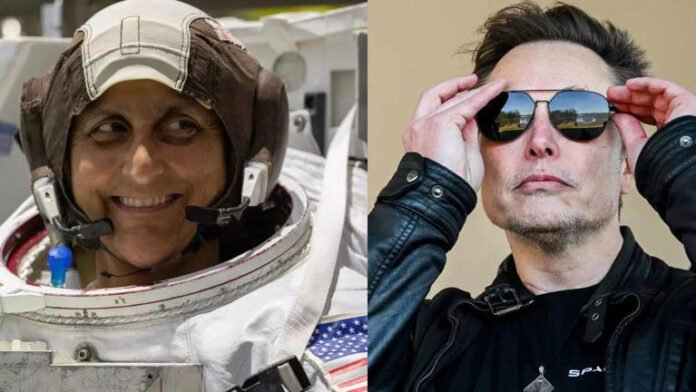The International Space Station (ISS), a symbol of global collaboration in space exploration, has become the center of a heated debate following SpaceX CEO Elon Musk’s recent call for its early decommissioning. Musk’s proposal has met with resistance from the astronaut community, notably NASA astronaut Sunita Williams, who emphasizes the station’s ongoing value and scientific contributions.
Musk’s Proposal for Early Decommissioning
On February 20, 2025, Elon Musk advocated for the deorbiting of the ISS “as soon as possible,” suggesting a timeline of two years. He asserted that the station “has served its purpose” and that resources should now be redirected towards Mars exploration. This stance aligns with Musk’s vision of prioritizing interplanetary missions over maintaining the aging orbital laboratory.
Astronauts’ Extended Stay and Response
NASA astronauts Sunita Williams and Barry “Butch” Wilmore have been aboard the ISS for over eight months, far exceeding their initial eight-day mission plan. The extension resulted from technical issues with Boeing’s Starliner capsule, which was slated to return them to Earth. In response to Musk’s deorbiting suggestion, Williams emphasized the station’s current productivity, stating, “Not the right time…we’re in our prime.” She highlighted the valuable scientific research being conducted, underscoring the station’s ongoing relevance.
Political Undertones and Disputes
The situation has been further complicated by political narratives. Musk, a supporter of former President Donald Trump, claimed that the Biden administration declined SpaceX’s offer to retrieve the stranded astronauts, implying political motives behind the decision. Astronaut Wilmore confirmed Musk’s assertion, stating it was “absolutely factual.” However, European Space Agency astronaut Andreas Mogensen challenged Musk’s claims, leading to a public dispute. Musk’s response included derogatory remarks, escalating tensions within the space community.
NASA’s Position and Future Plans
NASA, along with its international partners, aims to operate the ISS until at least 2030. The agency is also collaborating with private companies to develop commercial space stations to eventually replace the ISS. Musk’s proposal for an earlier deorbiting presents a challenge to these plans, potentially disrupting ongoing scientific research and international collaborations.
Scientific Contributions and Legacy
Since its inception, the ISS has been instrumental in advancing scientific knowledge across various fields, including biology, physics, and astronomy. Experiments conducted aboard the station have led to numerous discoveries and technological advancements. Astronauts like Williams and Wilmore continue to conduct critical research, contributing to our understanding of space and its effects on human physiology. The station’s unique microgravity environment offers unparalleled opportunities for experimentation that cannot be replicated on Earth.
Public and Expert Opinions
The discourse surrounding the ISS’s future has elicited diverse opinions from both the public and experts. Supporters of Musk’s viewpoint argue that focusing on Mars colonization aligns with humanity’s next giant leap in space exploration. Conversely, proponents of maintaining the ISS emphasize its role in fostering international cooperation and its ongoing scientific value. They caution against an abrupt end to the station’s operations, which could lead to a gap in low-Earth orbit research capabilities.
The debate over the ISS’s fate encapsulates broader discussions about the direction of human space exploration. Balancing aspirations for interplanetary missions with the tangible benefits of current orbital research presents a complex challenge. As stakeholders deliberate the station’s future, the contributions of astronauts like Sunita Williams serve as a testament to the ISS’s enduring significance in expanding the horizons of human knowledge.

